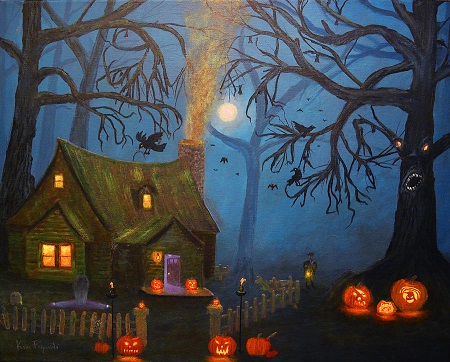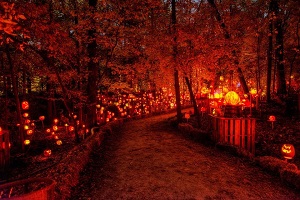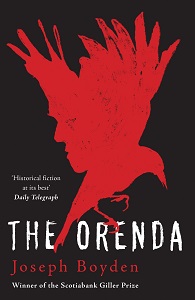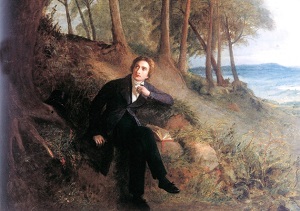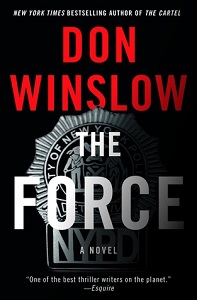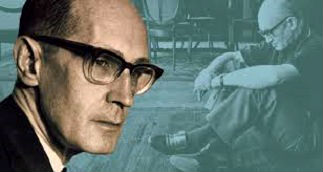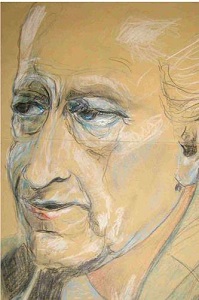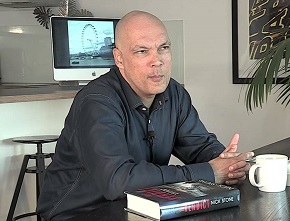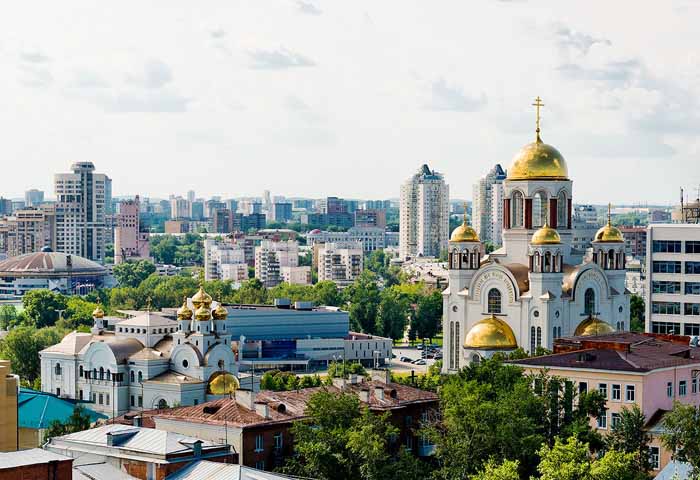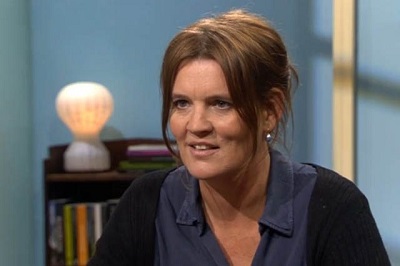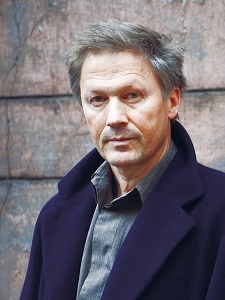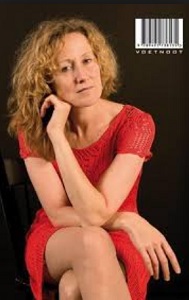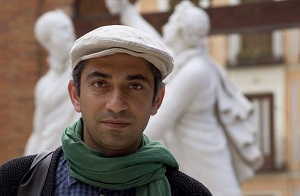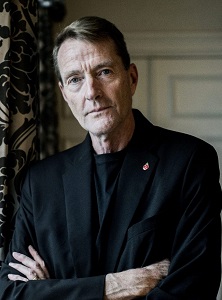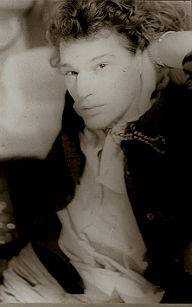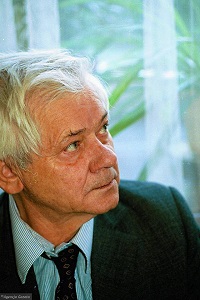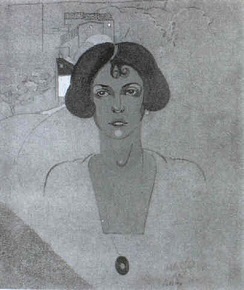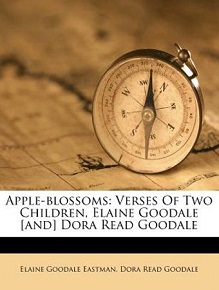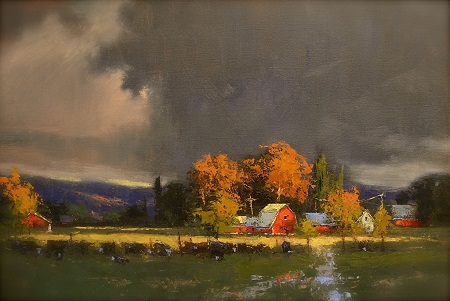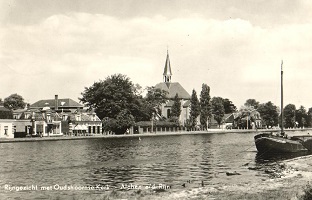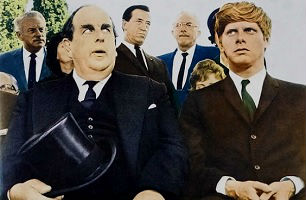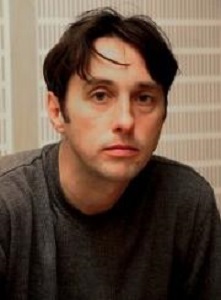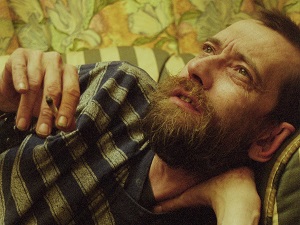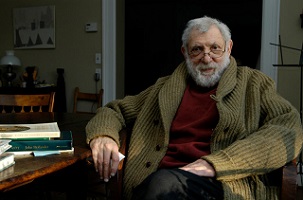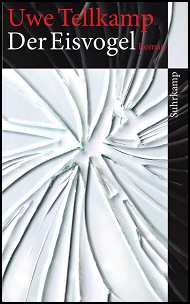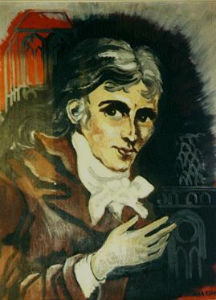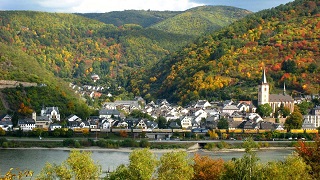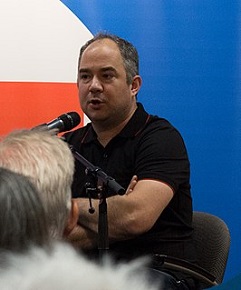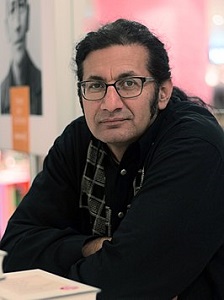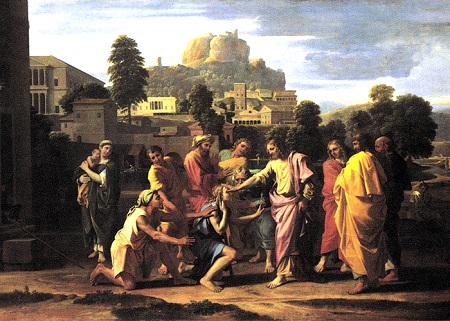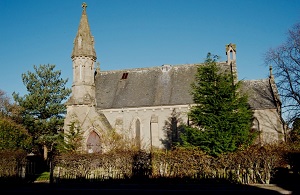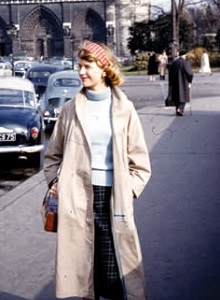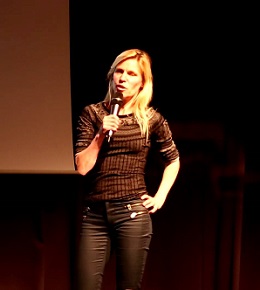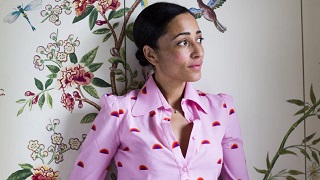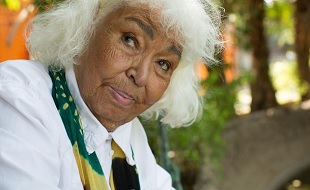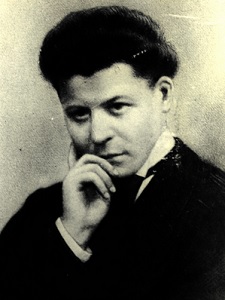De Vlaamse schrijver Jan Van Loy werd op 30 oktober 1964 geboren te Herentals, in de Antwerpse Kempen. Zie ook alle tags voor Jan Van Loy op dit blog.
Uit: Hondenbrood
“Onze koffiekopjes zijn leeg, en Celis en ik leunen doelloos op de tapkast. De kroegbaas vouwt een vaatdoek in vieren. Celis futselt wat aan zijn lepeltje. Wij zijn de enige klanten.
‘Ik haat de ochtend,’ zeg ik.
‘IJdelheid der ijdelheden,’ zegt Celis.
‘Alles ligt zo plat als een paardenvijg.’
‘Jongens, hou het toch eens beetje luchtig,’ zegt de man achter de tap. ‘Kijk eens naar buiten. De zon schijnt, het wordt een prachtige dag.’
‘Wat is dat toch met die middenstand?’ zegt Celis tegen mij. ‘Wil altijd maar kletsen.’
‘Denken dat ze meer kunnen verzetten als ze er wat gelul bijdoen.’
‘Rustig, rustig,’ zegt de kastelein.
‘Onlangs heb ik het mijn kapper nog ingewreven,’ zeg ik. ‘Ik zei zwijgen en knippen, barbier, zei ik, ik wil niet weten waar jij met vakantie bent geweest.’
‘Ik praat met winkeliers zoals met mijn seniele oma,’ zegt Celis. ‘Als ze zegt, lekker weer, dan zeg ik: o jáá.’
‘Maar morgen wordt het weer slecht, zeggen ze.’
‘Altijd hetzelfde in dit kloteland.’
‘Als ik met pensioen ben, overwinter ik in Spanje.’
‘Maar gelijk heb je. Profiteer er maar van.’
Celis wendt zich tot de kroegbaas. ‘Is het nu luchtig genoeg?’ vraagt hij.
‘Drinken jullie nog iets, of hoe zit het?’
Ik laat mijn kont van mijn kruk glijden. ‘Kom,’ zeg ik. ‘Hij houdt niet van ons.’
Aan een plein dat wemelt van de vretende en schijtende duiven, vinden we nog één vrije bank.
‘Ik wil niet gaan dweilen,’ zegt Celis.
Maandag moeten we gaan dweilen. ’t Is allemaal de schuld van Kristien.
Als hij niet uitkijkt, krijgt elke niksnut in dit land een maatschappelijk werkster over zich heen, en wij hebben Kristien gekregen. Dat ‘werkster’ doet ons altijd denken aan een bij, een vervelende bij die dreigend om je oren komt zoemen en zichzelf in een huidplooi probeert te wringen om je daar een steek te geven met het excuus dat ze niet anders kon. Wat een nuttig dier, die bij: zij schenkt ons honing en verse bloemen, het is de altruïst onder de insecten – maar net als alle altruïsten zijn het hypocrieten, die bijen. Leve de onvervalst valse wesp.
Kristien is een bij. Het liefst belt ze je om half negen ’s ochtends uit bed, voor de een of andere formaliteit die noodzakelijk heet te zijn vanwege ‘het nieuwe computersysteem’ dat nu al jaren onderweg is.”
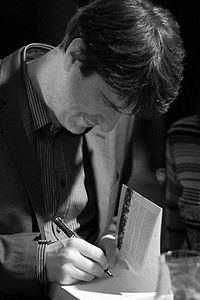
Jan Van Loy (Herentals, 30 oktober 1964)
De Amerikaanse schrijver, psychiater en journalist Andrew Solomon werd geboren op 30 oktober 1963 in New York. Zie ook alle tags voor Andrew Solomon op dit blog.
Uit: A Stone Boat
“This is what happened when my mother got sick: we were in Europe, on one of those family trips we had been taking since my childhood, one of those exquisitely conceived and impeccable holidays into which my mother poured—so it seems in retrospect—more energy than she could afford. “Just think, Harry:’ my mother had said a week before, her voice lilting. “Four days of Paris, August sun, the city almost empty, and then we’ll go down to the château—you’ll love the chateau—and we’ll eat breakfast looking across the valley, and we’ll go for walks, and we’ll swim a little if it gets really warm, and we’ll go see all the Matisses. There’s a piano at the château, so you can practice, but no one is going to make you perform for a whole two weeks. Just come along and relax and have a good time’ I was living in London then, and my parents flew across the Atlantic three or four times a year; my father’s bank had an office in the UK, and since my move to Britain he had taken an active interest in supervising the local staff, and came over for regular quick visits. My mother and I would spend the after-noons together while he worked, and then we would all meet for supper. Sometimes my parents came straight to London, but often enough I met them on the Continent so that we could all travel together. A few days before breakfast looking across the valley, my mother got sick in Paris. I will not forget my parents’ arrival in Paris that time. My old friend Helen, my brother, Freddy, and I had been sitting for at least an hour in the bar at the hotel, waiting. When Helen and I left the bar (we left to see whether my parents had arrived yet, while Freddy went off to the bathroom), there they were. My father was at the front desk, discussing the rooms in his familiar way, and my mother was sitting nearby. The reality of my par-ents’ checking in that day is so strong that it overwhelms me:”

Andrew Solomon (New York, 30 oktober 1963)
De Amerikaanse dichter Ezra Pound werd geboren in Hailey, Idaho op 30 oktober 1885. Zie alle tags voor Ezra Pound op dit blog.
Uit: Canto III (Fragment)
I sat on the Dogana’s steps
For the gondolas cost too much, that year,
And there were not ” those girls “, there was one face,
And the Buccentoro twenty yards off, howling ” Stretti “,
And the lit cross-beams, that year, in the Morosini,
And peacocks in Kore’s house, or there may have been.
Gods float in the azure air,
Bright gods and Tuscan, back before dew was shed.
Light: and the first light, before ever dew was fallen.
Panisks, and from the oak, dryas,
And from the apple, maelid,
Through all the wood, and the leaves are full of voices,
A-whisper, and the clouds bowe over the lake,
And there are gods upon them,
And in the water, the almond-white swimmers,
The silvery water glazes the upturned nipple,
As Poggio has remarked.
Green veins in the turquoise,
Or, the gray steps lead up under the cedars.
My Cid rode up to Burgos,
Up to the studded gate between two towers,
Beat with his lance butt, and the child came out,
Una nina de nueve anos,
To the little gallery over the gate, between the towers,
Reading the writ, voce tinnula:
That no man speak to, feed, help Ruy Diaz,
On pain to have his heart out, set on a pike spike
And both his eyes torn out, and all his goods sequestered, ”
And here, Myo Cid, are the seals,
The big seal and the writing.”
And he came down from Bivar, Myo Cid,
With no hawks left there on their perches,
And no clothes there in the presses,
And left his trunk with Raquel and Vidas,
That big box of sand, with the pawn-brokers,
To get pay for his menie;
Breaking his way to Valencia.
Ignez da Castro murdered, and a wall
Here stripped, here made to stand.
Drear waste, the pigment flakes from the stone,
Or plaster flakes, Mantegna painted the wall.
Silk tatters, “Nec Spe Nec Metu.”
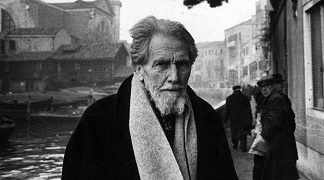
Ezra Pound (30 oktober 1885 – 1 november 1972)
In 1963
De Franse dichter en schrijver Paul Valéry werd geboren op 30 oktober 1871 in Sète. Zie ook alle tags voor Paul Valéry op dit blog.
Été
Été, roche d’air pur, et toi, ardente ruche,
Ô mer! Éparpillée en mille mouches sur
Les touffes d’une chair fraîche comme une cruche,
Et jusque dans la bouche où bourdonne l’azur;
Et toi, maison brûlante, Espace, cher Espace
Tranquille, où l’arbre fume et perd quelques oiseaux,
Où crève infiniment la rumeur de la masse
De la mer, de la marche et des troupes des eaux,
Tonnes d’odeurs, grands ronds par les races heureuses
Sur le golfe qui mange et qui monte au soleil,
Nids purs, écluses d’herbe, ombres des vagues creuses,
Bercez l’enfant ravie en un poreux sommeil!
Dont les jambes (mais l’une est fraîche et se dénoue
De la plus rose), les épaules, le sein dur,
Le bras qui se mélange à l’écumeuse joue
Brillent abandonnés autour du vase obscur
Où filtrent les grands bruits pleins de bêtes puisées
Dans les cages de feuille et les mailles de mer
Par les moulins marins et les huttes rosées
Du jour… Toute la peau dore les treilles d’air.
Féerie
La lune mince verse une lueur sacrée,
Toute une jupe d’un tissu d’argent léger,
Sur les bases de marbre où vient l’Ombre songer
Que suit d’un char de perle une gaze nacrée.
Pour les cygnes soyeux qui frôlent les roseaux
De carènes de plume à demi lumineuse,
Elle effeuille infinie une rose neigeuse
Dont les pétales font des cercles sur les eaux…
Est-ce vivre?… Ô désert de volupé pamée
Où meurt le battement faible de l’eau lamée,
Usant le seuil secret des échos de cristal…
La chair confuse des molles roses commence
À frémir, si d’un cri le diamant fatal
Fêle d’un fil de jour toute la fable immense.
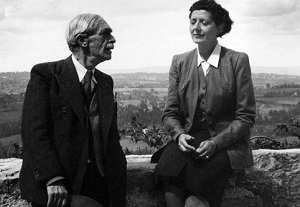
Paul Valéry (30 oktober 1871 – 20 juli 1945)
Hier met zijn “laatste muze” Jean Voilier (rechts), eind jaren 1930
De Spaanse dichter en schrijver Miguel Hernández werd geboren in Orihuela, Alicante, op 30 oktober 1910. Zie ook alle tags voor Miguel Hernández op dit blog.
Elegy For Ramon Sue
(In Orihuela, where he and I were born, death like a lightning flash deprived me of Ram6n Sij6, so dear to me.)
I want to be the grieving gardener
of the earth you fill and fertilize,
my dearest friend, so soon.
Mingling my helpless sorrow with the rain,
the snails, and all the organs of your body,
I shall feed your heart
to the drooping poppies. Pain bunches up
between my ribs till every breath I draw
becomes an aching stitch.
A brutal slam, a heavy frozen fist,
a sudden silent killing axe-blow sent
you toppling to the ground.
Nothing gapes wider than my wounded cry,
this grief that plummets down to roots of death
sunk deeper than my life.
Across the stubble of the dead I walk
uncomforted, leaving my heart behind,
and go about my business.
Vertaald door Edwin Honig
First Song
The field has retreated,
seeing man’s
convulsive charge.
What an abyss is laid bare
between the olive tree and man!
The animal who sings,
the animal who knows
how to weep and grow roots,
has remembered his claws.
Claws that he dressed up
in gentleness and flowers
but which, in the end, he bares
in all his cruelty.
They crackle on my hands:
Keep away from them, boy.
Or I will plunge them
into your little body.
I’ve regressed into a tiger.
Keep away or I’ll tear you apart.
These days, love is death,
and ma lies in ambush for man.
Vertaald door Don Share
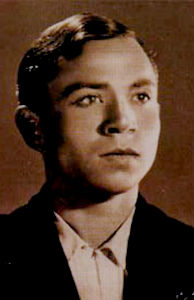
Miguel Hernández (30 oktober 1910 – 28 maart 1942)
De Russische schrijver Fjodor Michajlovitsj Dostojevski werd geboren ergens tussen 30 oktober en 11 november 1821 in Sint Petersburg. Zie ook alle tags voor Fjodor Dostojevski op dit blog.
Uit: Buried Alive: Or, Ten Years Penal Servitude in Siberia (Vertaald door Marie von Thilo)
“Oun prison was situated on the outskirts of the fortress, and almost immediately above the rampart. I used often to look through the chinks in the fence and try and catch a glimpse of the wide world beyond. But all I could see was a little piece of the sky and the high grassy rampart where the sentinels walked to and fro day and night. And then I used to wonder how often during the long years that lay before me I should creep to the fence and peep through the holes and see the same sentinels and the same rampart and the same little bit of blue sky, which, strange to say, did not seem to belong to that sky which we could see from our prison, but rather to some other sky that was far away from us, and under which free people lived. The courtyard was very large—two hundred feet long and one hundred and fifty wide. It formed an irregular hexangle, and was surrounded by a high fence made of posts pointed at the top. They had. been rammed deep into the ground, and stood so close that they nearly touched each other. Across the posts broad planks had been nailed to make the fence still more solid. This was the outer bulwark of the convict prison. An opening had been left for the,gates in one of the sides of the hexangle. They were very strong, and always kept locked and watched night and day by the sentinels. The only time when they were unlocked was when the convict prisoners left the prison to go to their work. Beyond those gates was the fair free world where the people might do as they listed. But to us who used on this side of the fence that world seemed as unreal as a weird fairy tale. For we lived in our on world, which was unlike anything we had ever heard or seen; we were ruled by our own laws, wore a peculiar garb, and had peculiar customs and habits. Our dwelling-place was not unlike a huge grave where living people had been buried; and I am going to describe to you this abode.”
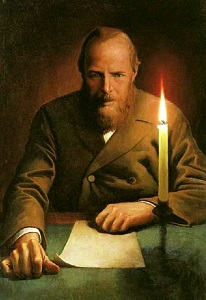
Fjodor Dostojevski(30 oktober 1821 – 9 februari 1881)
Portret door Konstantin Vasilyev, z.j.
De Duitse dichter Georg Heym werd geboren op 30 oktober 1887 in Hirschberg. Zie ook alle tags voor Georg Heym op dit blog.
An den schönen Gott
Wenige nur lieben dich noch
Seit dich verstieß das verächtliche Volk.
Ihre Seelen tragen darum
Kummer und Haß und Hohn.
Doch in ihr Herz senketest du,
Als du schiedest, die Schönheit, und
Sie erkennen einander an
Sehnsucht und Leid im Aug.
Die Somnambulen
Schon braust die Mitternacht. Mit langem Haar
In weiße Tücher feierlich gehüllt
Zieht schwankend auf der Somnambulen Schar,
Wie Rauch so weiß, der weit den Himmel füllt.
Aus allen Dächern steigen sie herauf,
Irrlichtern gleich auf einem schwarzen Sumpf.
Sie tanzen auf der Wetterfahnen Knauf,
Mit irren Lächelns fröhlichem Triumph.
Sie schlagen Zimbeln in der leichten Hand
Und irren singend in der grünen Luft.
Vor ihren Brüsten zittert ihr Gewand,
Die wild den Mond berauschen, süß, voll Duft.
Sie kitzeln ihn mit ihren zarten Händen
Und zwicken leicht ihn in das gelbe Ohr.
Sie wiegen sich in ihren magern Lenden
Im Tanzschritt hin, ein weißer Trauerchor.
Sie fliegen durch die Nacht wie Wolken leise
Hoch über spitzer Berge blauem Grat
Hinauf zu ihm auf ihrer leichten Reise
Zu einem Wiegenlied an Abgrunds Pfad.
Der Mond umfängt sie sanft mit Spinnenarm.
Ihr Haupt wird von dem Kusse weiß gemalt.
Sie ruhn an ihres Bräutigams Herzen warm,
Der tief durch ihre dünne Rippe strahlt.
Halber Schlaf
Die Finsternis raschelt wie ein Gewand,
Die Bäume torkeln am Himmelsrand.
Rette dich in das Herz der Nacht,
Grabe dich schnell in das Dunkele ein,
Wie in Waben. Mache dich klein,
Steige aus deinem Bette.
Etwas will über die Brücken,
Er scharret mit Hufen krumm,
Die Sterne erschraken so weiß.
Und der Mond wie ein Greis
Watschelt oben herum
Mit dem höckrigen Rücken
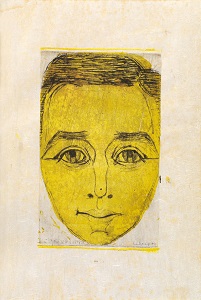
Georg Heym (30 oktober 1887 – 16 januari 1912)
Ets door Ernst Ludwig Kirchner, 1924
De Griekse dichter en schrijver Kostas Karyotakis werd geboren op 30 oktober 1896 in Tripolis. Zie ook alle tags voor Kostas Karyotakis op dit blog.
Strophes
1.
For twenty years I gambled
with books instead of cards;
for twenty years I gambled
and I squandered my life.
Poor now I lie down here
to listen to an easy wisdom
which an old plane tree
whispers to me.
2.
Free from everything I want
to sail to the end of the world.
If I have any friend left,
he should flee, escape.
And when death demands
the wealth I’ve amassed,
you, my vast bitterness,
will be my only estate.
Vertaald door Haris Stavrakis
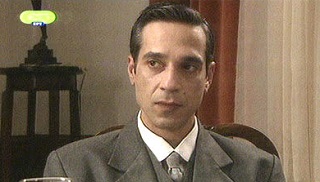
Kostas Karyotakis (30 oktober 1896 – 21 juli 1928)
Dimosthenis Papadopoulos als Kostas Karyotakis in de Griekse dramaserie “Karyotakis” uit 2009
De Tsjechische dichter, schrijver, essayist en vertaler Michal Ajvaz werd geboren op 30 oktober 1949 in Praag. Zie ook alle tags voor Michal Ajvaz op dit blog.
The Other City (Vertaald door Gerald Turner)
“A cough was heard from the cinema foyer. It was even worse than that gloomy November day when you were walking through the deserted center of a village near Prague and you heard from a loud-speaker attached to a lamppost a voice ironically reading your study about the Grail of rural post-offices, which lay at the bottom of your desk drawer and which you have never given to anyone to read, because it was your only piece of writing in which you openly named (even with the vilest consonants produced by slovenly and depraved movements of the tongue in the moist darkness of the mouth) the thing that squelches its way out of the deep chasm in the middle of your apartment. Some kind of St Vitus’s Cathedral, even bigger than the one at Prague Castle, is moving around the Sobeslav district at a speed of 170 mph. The Isthmus rises above the surface of two seas. The piano turned into crabs and crept around the bedroom, the moment was not yet ripe for the music to sound, not yet; the goddesses in silver cases had not yet fallen through the ceiling of the monsters’ parliament. The pictogram with the spiral at its center, drawn in pencil on the backs of the lively piano crabs, is pronounced with a sound that resembles a sneeze in a concrete bunker and means forgetting the supple movements of the hand with the green rings in the darkened room in the house above the lake. (There are many and various Chinas on whose outskirts we live; there are rice fields in all the rooms of the adjacent apartment.) You wanted to flee the dial dance because speech is inadequate to describe what was here before the emergence of ornament. We wouldn’t even be able to see the primordial dance because vision is so embedded in the mesh of familiar sense, that whatever is not nourished by that sense would remain invisible to us.” “But what about the starfish on the carpet, the Gothic-chapel railroad car and the books with the mysterious script?” I objected. “After all, people from our world encountered them:’ “Those are just things that happen to get washed up on our shore, which we have enveloped in some compensatory meaning on the basis of false similarities with our own experience. The anxious and cunning deity of grammar holds its protective hand over us, and conceals the monsters’ faces; we say ’that thing’s a mystery’ and ’that incident is uncanny: but in doing so we discreetly wrap their dreadful presence, their sinister essence, unrelated to anything and defying our gaze, in metaphor, as if in an old threadbare suit and so assign them a place in our world. It can’t be helped. It doesn’t matter who drew the pattern on our mosaic floor, it still remains our prison and our home.”
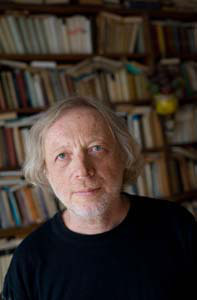
Michal Ajvaz (Praag, 30 oktober 1949)
Zie voor nog meer schrijvers van de 30e oktober ook mijn blog van 30 oktober 2017 en ook mijn blog van 30 oktober 2011 deel 2.
